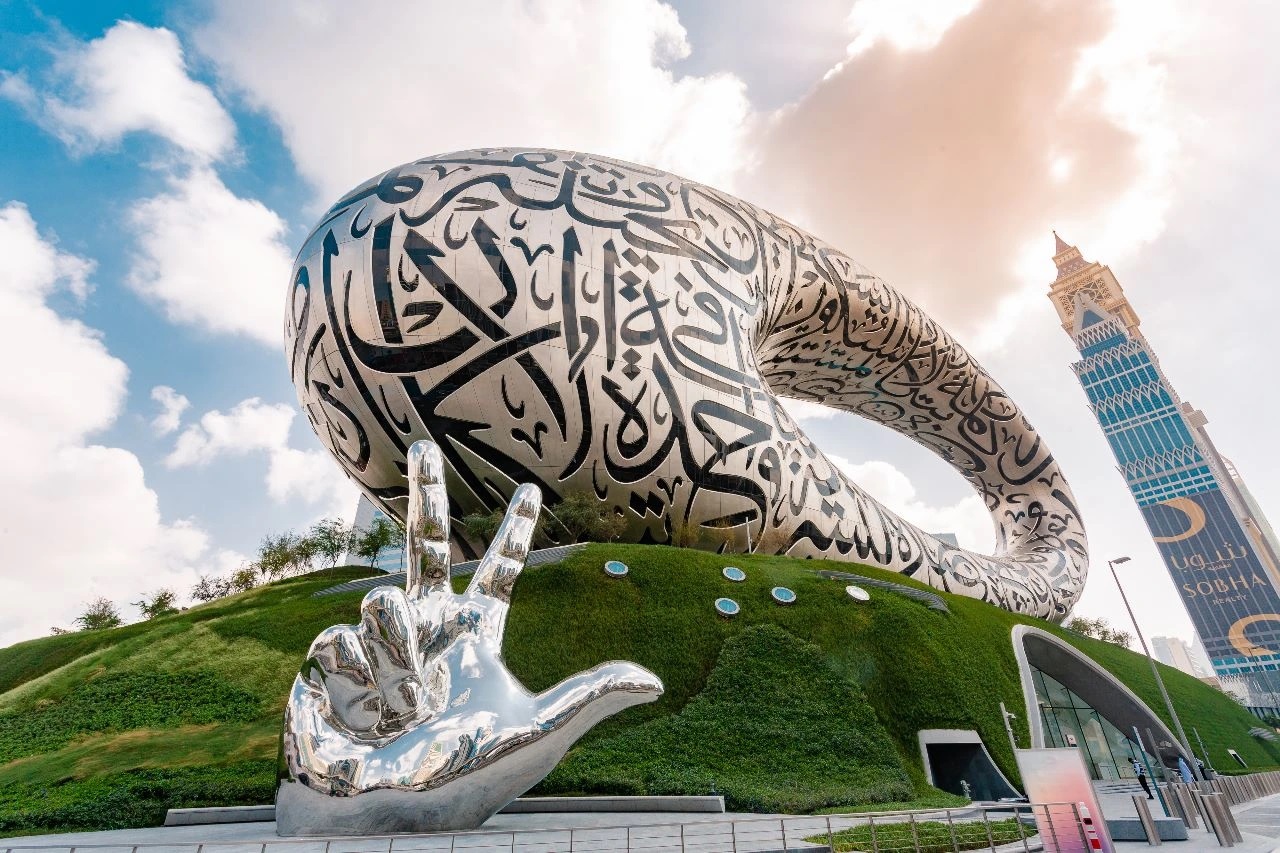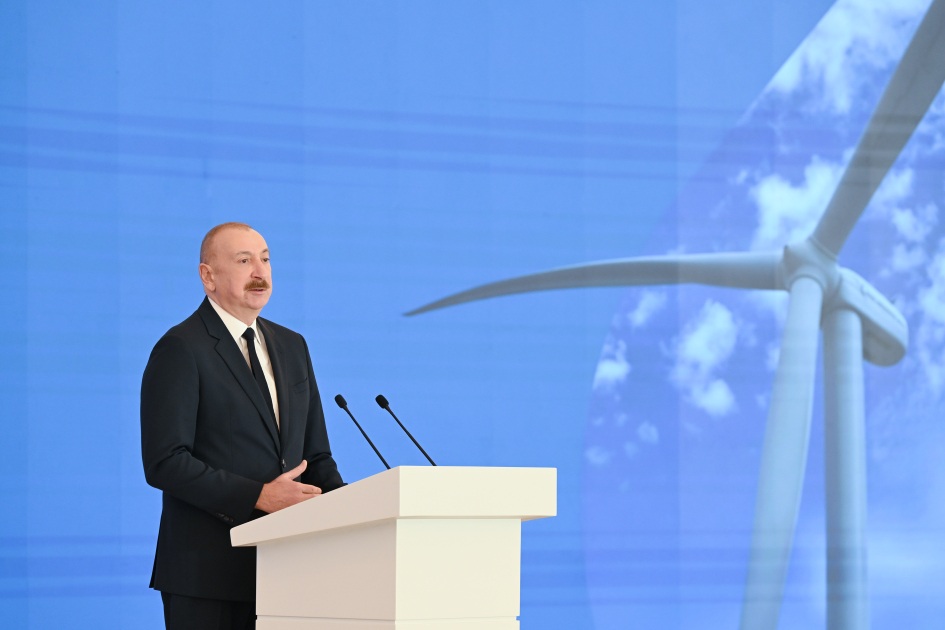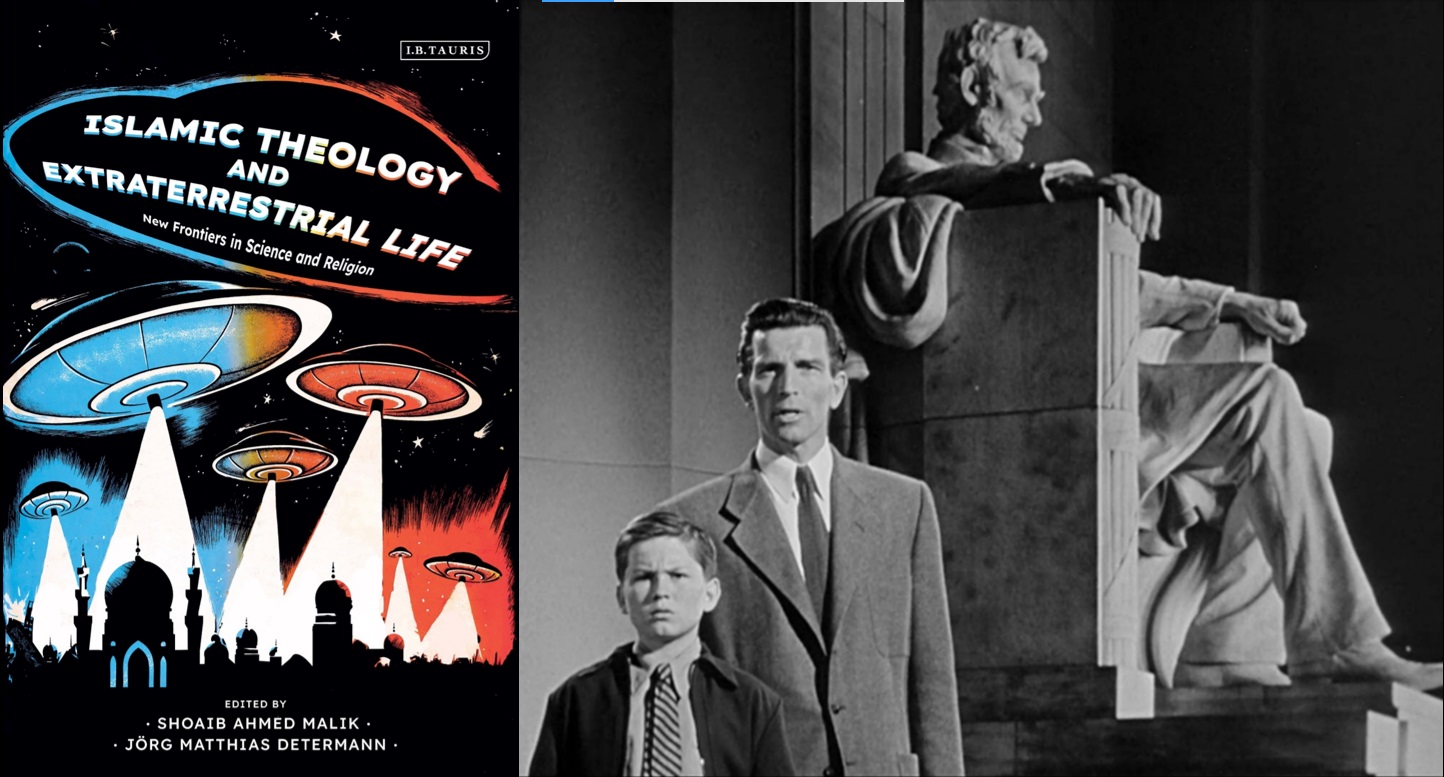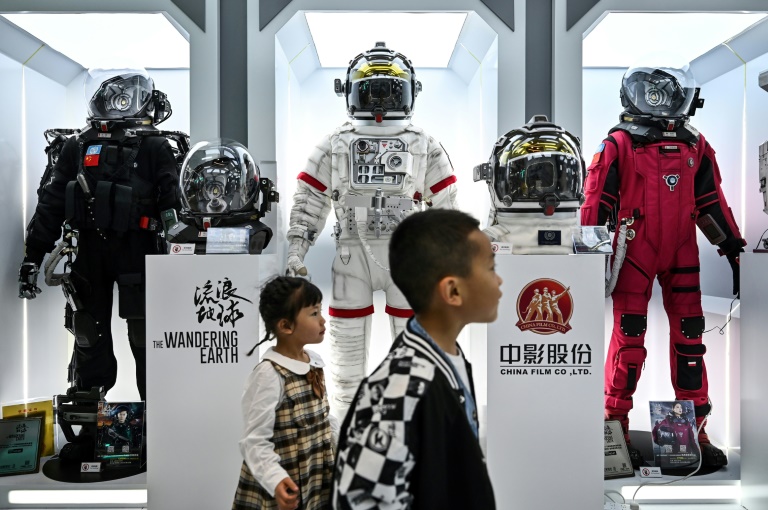
One last report about the Chengdu WorldCon that I attended last month. When two parts of the world commune, there’s no end to what you can write about. In this case, while doing my Afro-futurism presentation, I had the good fortune of sitting astride Dr. Li Guangyi, Professor of Chinese and World Literature at Chongqing University.
By Emad Aysha
We’ve talked since then, and he told me how the West was neglecting China’s premier SF author, Liu Cixin – author of the world-famous Wandering Earth and Three-Body Problem – and got an academic article of his from Science Fiction Studies, “China Turns Outward: On the Literary Significance of Liu Cixin’s Science Fiction” (March 2019, pp. 1-20). The crossover points with Arab SF immediately struck me.
The first sentiment that struck Liu Cixin was how he never saw SF as just being about science and technology but about drama and human emotions, liberating the beauty of science from ‘cold equations’ as he puts it.
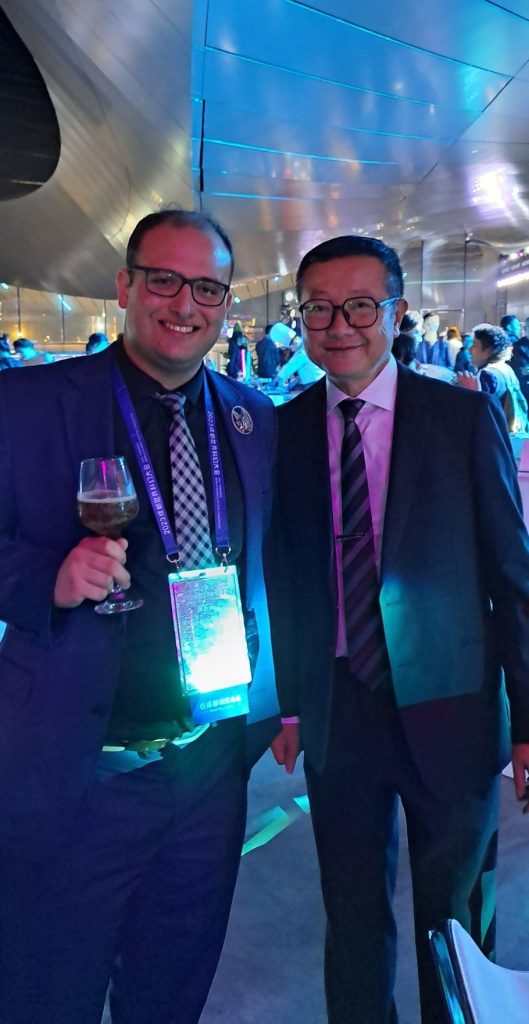
HUMAN SENTIMENTS: The great man himself, Liu Cixin, with Jeremy Szal all over again.[Picture from Jeremy's Twitter account]
Well, wouldn’t you know it, a book I always return to by Yousef Al-Sharouni, Science Fiction in Contemporary Arabic Literature (2002), states immediately in its introductory chapter that SF was an attempt to reconcile the ‘Two Cultures’ of science and the humanities, a la C. P. Snow.
That’s a very Arabic sentiment; people who love drama (and melodrama), tragedy, epic romance, and poetry. Liu Cixin is voicing this concern so eloquently that you can tell he comes from a nation that loves the same things as us. And on its terms, without referring to Western designations.
A second sentiment is the importance of Third World causes, championing brave attempts at national independence, political solidarity, and economic development. In the era of Mao Zedong and more so after the Sino-Soviet split, China saw itself as the leader of the Third World.
Consequently, writing SF for Liu Cixin is all about finding a common cause with the oppressed and an acute awareness that technology alone does not guarantee progress and is not the only measure of progress.
Same with us Arabs in the non-aligned world, although I’d wager we’re still a bit more naïve about technology solving our day-to-day problems, at least until the post-Arab Spring and rise of Arab dystopian SF.
A third shared sentiment is humanism. China is a galaxy of nations, not just a regular nation-state. Progress in their literary history (especially in SF) means reconciling differences and focusing on what we have in common instead of what divides us. I also spoke with a young Chinese sci-fi enthusiast at WorldCon, and he said the same thing.
You’d think we, as Arabs and Muslims, would not share those sentiments when it comes to putting pen to fantastical paper, but amazingly enough, we do.
We’re pan-regionalists, travelers, and merchants, and part of an expanded world of Muslims that engages with an even more expanded world. And China is one of those nations we’ve always been reaching out to, from caravan routes before Islam to the Prophet Muhammad told us to seek wisdom in China (the farthest point of the world at the time).
I’ve read story after SF story where Muslims are either leaders in science and progress, helping out the whole of humanity or representing it up against extraterrestrials, or with extraterrestrials turning out to be monotheist legalists just like us.
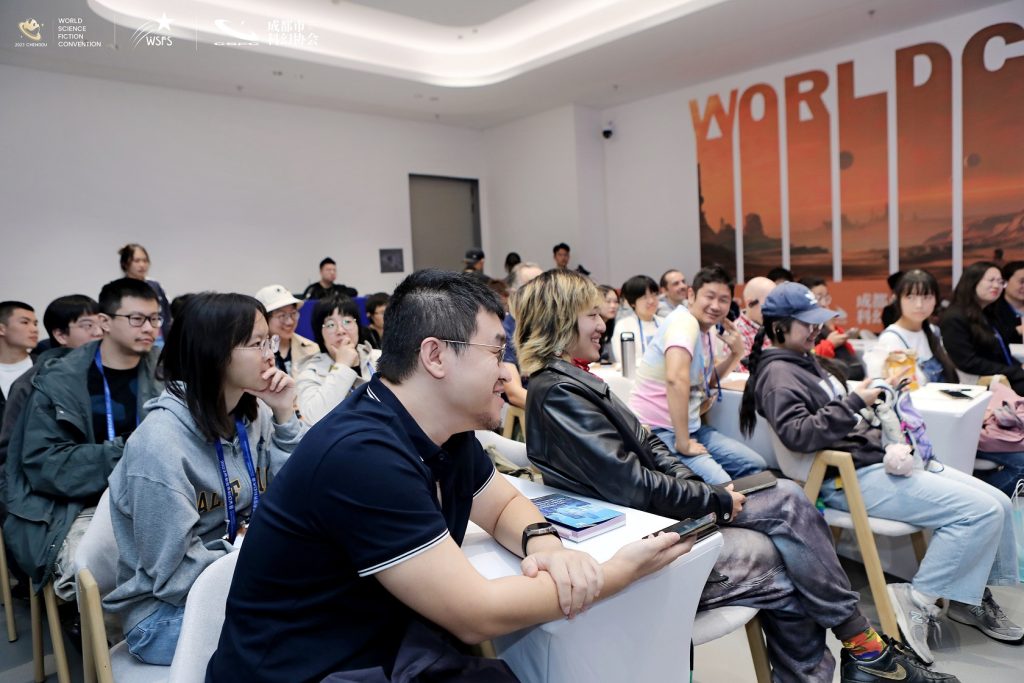
BRAIN'S TRUST: China's rising readers, or writers? [Thanks again to the volunteers for this photo of the Afrofuturism workshop]
A fourth SF sentiment we share with Liu Cixin is evolution. To him, SF is the only branch of literature that deals with change, whereas social realism leaves us stuck in the here and now, and as a consequence, the objective of SF is to push history and humanity forward.
In our McFarland book at the Egyptian Society for Science Fiction (ESSF), we have Dr. James E. Gunn talking about the self-same issue and, amazingly enough, I also quote Egyptian SF advocate Ragi Enayat talking about how SF is about change and embracing change while also being aware of the hazards that can come from this.
His ultimate maxim for science fiction was that before your dream, you have to know yourself, and before you devise plans to modernize yourself, you must dream.
A final sentiment is environmentalism and Mother Earth, although I’d wager it’s more sophisticated with Liu Cixin and the corpus of Chinese SF. For instance, he insists that man must leave the earth and colonize other worlds. Or else we won’t be able to maintain life on our jolly green planet. He explores other eco-friendly possibilities like miniaturization so we don’t use up too many resources or fuse with computers and become electrons, again to avoid resource consumption and destroying habitats.
A story of his I read, “The Time Migration,” has an excess population being frozen and sent into the future. They’re rejected as migrants on more than one awakening. In one particular awakening, they find the earth has been turned into a giant glass ball – no mountains and valleys and bodies of water – with additional suns, reflectors of the central light, banishing night. They go further into the future, and man no longer exists biologically, with the obliterated habitat falling into neglect.
The final awakening, however, has nature restored and no human race. Instead of fusing with machines, they connect with the wildlife. The female protagonist hears her long-lost husband’s voice in the wind, talking to her through a bird’s chirping.
Did I mention that Professor Guangyi loves the premise of Yaqteenya, given Liu Cixin’s story “West Ocean,” where the Chinese discover and colonize the New World, all thanks to Muslim Chinese admiral Zheng He? Written in 1998. So, while we’re on parallel lines with the Chinese, they’re still ahead of us if on the same course!!
Professor Li Guangyi is also Director of the Research Center for Science Fiction and Techno-Humanities and Vice Dean of the Institute for Advanced Studies in Humanities and Social Sciences at Chongqing University.




